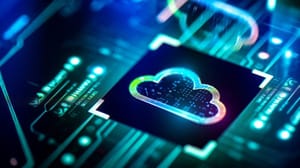Smart Home Project Director, EDF, France: “Data analytics will become a key competency.”Smart Home Project Director, EDF, France: “Data analytics will become a key competency.”
Jean-Paul Krivine, Smart Energy - Smart Home Project Director, EDF, France, is speaking in the Connected Home stream on Day Two of the Broadband World Forum taking place on the 22nd - 24th October 2013 at the RAI Exhibition and Convention Centre, Amsterdam. Ahead of the show we find out more about what role energy companies will play in the ‘digital home’ and the value added services they will be able to provide.
September 17, 2013

Jean-Paul Krivine, Smart Energy – Smart Home Project Director, EDF, France, is speaking in the Connected Home stream on Day Two of the Broadband World Forum taking place on the 22nd – 24th October 2013 at the RAI Exhibition and Convention Centre, Amsterdam. Ahead of the show we find out more about what role energy companies will play in the ‘digital home’ and the value added services they will be able to provide.
How will the ‘Digital Home’ change how you interact with your customers compared to what is standard today?
Thanks to the Internet and the ubiquity of smartphones, our customers are more and more connected, everywhere and anytime, with instant access to their data and their social networks. This is becoming the standard for customer relationship in all sectors. As a result our customers are not just comparing EDF channels with what our competitors in the energy sector deliver, but with what Amazon, Google and others are doing.
With the Internet of Things and myriad communicating objects, the digital home that is emerging provides a huge opportunity to add rich content to this interaction. Specifically, the smart meters that are about to be rolled-out in all European countries are key communication devices and will enable us to deliver on the primary expectation of our customers, that is transparency on consumption and clear bill understanding. However, they will also act as a preliminary step for further services.
Why will the consumer want to have a ‘smart’ meter in their house, and who should foot the bill for its installation?
The smart meter is not an end-it-itself. Customers haven’t a clear idea of what a smart meter is, and how they can benefit from it. What will interest them will be the services that will be built that make use of it. Examples are transparency on energy consumption, accurate bills, and remote actions without any need for appointments. Some of the basic services will be part of a normal modernisation programme and will be free of charge. For other applications though, the customer will be ready to pay for it.
In France, the full roll-out of smart meters is fully balanced by the value generated for meter and network operations, so the customer will not pay for it. In some other countries (the UK for instance), the benefit is at a more aggregated level, so any increase in the final bill will have to reflect truly new services.
The Broadband World Forum is taking place on the 22nd – 24th October 2013 at the RAI Exhibition and Convention Centre, Amsterdam. Click here to download a brochure for the event and here to register for a conference pass.
Is there a standard for ‘smart metering’ amongst the energy players and who is driving that process?
We have to consider this separately downstream and upstream from the meter. Upstream of the meter, meter operation and data collection, should be supported by a common standard at national level.
In France, having mainly one network and meter operator that covers almost all customers, we have a de facto standard. In some other countries, where meter operations are fragmented between several players (the UK for instance), a common infrastructure has to be designed to ensure interoperability and standards.
Downstream of the meter, i.e. the connection to the home network, the question relies on a digital home standard. This has yet to be created, and it will probably be solved for other reasons that energy. However, we are strongly involved in large scale trials (for instance, Smart Electric Lyon, in France) with the main digital home players to ensure standards will actually emerge, enabling interoperability and deployment of new services at the lowest possible cost.
What are the challenges involved in managing the data generated by smart meter?
The challenges are numerous, such as the quantity of data and the frequency of collection, amongst others. Compare to now, where we collect a few indexes per year, the challenge is significant. It concerns both the data operator (in France, the DSO) and the suppliers. But, from a supplier’s point of view, another exciting challenge has to be handled: how to transform data in useful knowledge that will be the basis for added-value services for our customers. Data analytics will become a key competency.
What partnerships and relationships have you built up with carriers to enable smart metering?
In France, smart meters are rolled-out by the network operator that is a regulated and neutral entity. EDF, as with all others suppliers, is working with it to ensure that the processes will be smooth from the beginning. Then, value-added services could rapidly be implemented. But more generally, energy suppliers need to develop partnerships with infrastructure operators to ensure they can benefit from connectivity at the lowest price and the greatest efficiency.
Is a ‘smart home’ automatically going to be more profitable for suppliers and bring cost savings to consumers?
The smart home is not primarily oriented to energy. The main drivers are comfort, entertainment, security, and health. Customers are ready to pay for such services, and some profitable businesses do already exist. However, customers are mainly concerned with energy when they have to pay their bill or when they haven’t any. The ‘smart home’ promise is a home that is easy to live in and as an energy company we want to also make it an efficient house.
What are you most looking forward to about attending the Broadband World Forum this year?
As mentioned before, the digital home is developing, mainly for reasons coming from outside the energy world. For an energy supplier, being part of this story is an opportunity. Interoperability, for instance, is necessary to enable services on top of energy, and to lower the cost of these services. Also, considering how energy services could be integrated in other services is another key issue. All these questions require exchange and partnerships with players coming from the Digital Home world and the Broadband World Forum is a great opportunity for that.
Read more about:
DiscussionAbout the Author
You May Also Like










.png?width=300&auto=webp&quality=80&disable=upscale)


_1.jpg?width=300&auto=webp&quality=80&disable=upscale)